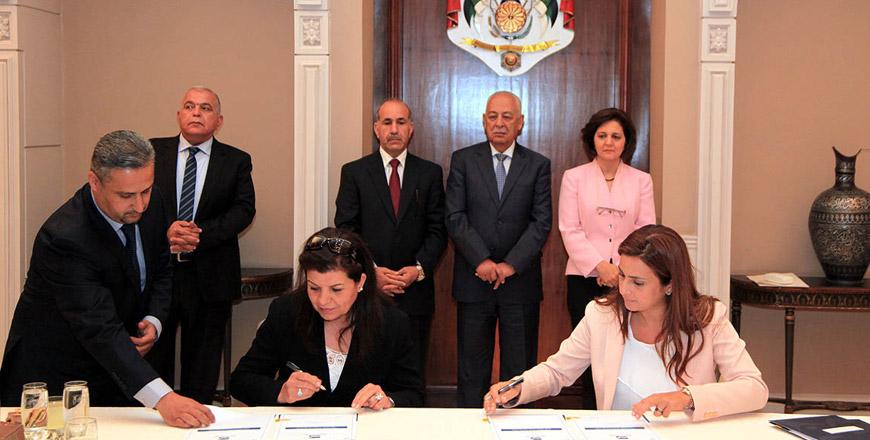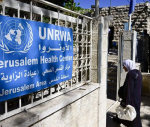You are here
Royal Court launches empowerment project in Tafileh
By JT - Jul 04,2017 - Last updated at Jul 04,2017
AMMAN — A Royal initiative was launched on Tuesday at the Royal Court to support and empower local communities in Tafileh.
In his speech at the launching ceremony, Royal Court Secretary General Yousef Issawi said that the plan aims at improving the living conditions of underprivileged families through helping them own income-generating projects that meet their needs and increase their contributions to the society.
The initiative is implemented in partnership with 16 charity associations in Tafileh, some 180km southwest of Amman, and in cooperation with the association of government-run social development centres, the Jordan News Agency, Petra, reported.
Issawi, who heads a committee that follows up on the implementation of Royal initiatives, added that the plan is a continuation of previous ones that were implemented in other governorates, which, he said, concluded with positive results and achieved their goals of empowering targeted families and improving their living conditions.
He cited similar initiatives that were launched on the first day of Ramadan in Madaba and Balqa governorates.
Social Development Minister Hala Lattouf stressed that Royal initiatives aim at enhancing social security and improving living conditions of all citizens across the Kingdom, highlighting the importance of this initiative in improving living standards of more than 300 families.
Founder and head of the association of social development centres Seri Nasser and Firyal Saleh delivered speeches, in which they said that the initiative will be implemented in coordination with the Social Development Ministry and administrative governors in targeted areas and under the direct supervision of the association.
They said that the association would cooperate with partner charity societies in selected beneficiaries and the projects they propose, in addition to following up on these schemes for two years to ensure that the families can sustain their projects.
Related Articles
AMMAN — A Royal initiative to support and empower local communities in Jerash was launched on Tuesday at the Royal Court, with the aim of im
AMMAN — In implementation of Royal directives, Royal Court Chief Yousef Issawi on Sunday checked on several development projects as part of
AMMAN — The Royal Court on Saturday launched a Royal initiative for community empowerment in Ajloun Governorate, which aims to improve the l

















